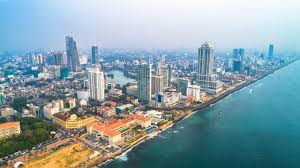Description
Smart Travels: Navigating the Future of Efficient and Enjoyable Journeys
In an age where technology touches every aspect of our lives, the way we travel has evolved significantly. From seamless booking systems to AI-powered personal assistants, “smart travel” is not just a buzzword but an evolving trend that is revolutionizing how we plan, embark on, and experience our journeys. This article explores the various facets of smart travel and how it enhances our travel experience, making it more efficient, enjoyable, and sustainable.
What is Smart Travel?
Smart travel encompasses a broad range of technologies and innovations that help travelers navigate the complexities of modern-day travel. These tools integrate data, artificial intelligence, and automation to enhance the overall experience, making trips more streamlined, personalized, and stress-free. Smart travel often leverages connected devices, real-time information, and predictive algorithms to optimize everything from transportation to accommodation, creating an ecosystem where the traveler’s convenience and experience are prioritized.
The Role of Technology in Smart Travel
AI-Powered Booking Systems: Gone are the days of endlessly searching for flight deals or hotel rooms. Artificial intelligence (AI) now plays a major role in personalized travel recommendations. Apps like Google Flights or Skyscanner use AI to predict flight prices, suggest the best travel dates, and even suggest personalized itineraries based on your preferences. These tools consider historical data, weather conditions, and personal interests to ensure you get the best possible deals with minimal effort.
Smart Luggage: Technology has even made its way into our luggage. Smart suitcases, equipped with GPS tracking, weight sensors, and even built-in charging ports, are gaining popularity. These suitcases can be monitored via smartphone apps to track their location, reduce the chance of lost luggage, and ensure they meet weight restrictions before heading to the airport.
Mobile Check-in and Digital Boarding Passes: The days of waiting in long lines at the airport are over. With the rise of mobile check-in apps from airlines, travelers can now check in for their flights, choose seats, and get digital boarding passes all from their smartphones. QR codes and biometric scans have replaced traditional paper tickets, speeding up the check-in process and reducing the need for physical documents.
Voice Assistants for Travel Planning: Virtual assistants like Google Assistant, Alexa, and Siri have evolved beyond simple tasks like setting alarms and playing music. They now serve as travel planners, providing real-time information about flight statuses, weather conditions, and even suggesting nearby restaurants or attractions. With voice search, users can quickly find answers to travel-related queries and even book services hands-free.
Enhancing the Travel Experience with Smart Tech
Smart Hotels: The concept of the smart hotel is gaining traction as more hotels adopt Internet of Things (IoT) devices to offer a seamless and personalized guest experience. From keyless room entry via smartphones to automated lighting and temperature control, these innovations enable guests to customize their stays with the touch of a button. Smart hotels also provide features like virtual concierge services, enabling travelers to book activities or get recommendations on local attractions without leaving their rooms.
Smart Cities and Public Transport: Smart cities are transforming the way we move around urban areas. Integrated transportation systems that utilize real-time data help travelers navigate cities more efficiently. In many cities, apps provide real-time updates on public transport schedules, allowing travelers to plan their routes with precision. Autonomous vehicles and electric bikes are also becoming commonplace, offering eco-friendly and convenient options for getting around.
Personalized Travel Itineraries: Leveraging data analytics, smart travel tools are able to create highly personalized itineraries that align with a traveler’s interests. Whether it’s exploring the culinary scene in a new city or finding lesser-known cultural hotspots, AI tools can curate unique travel experiences based on past behavior and preferences. Apps like TripIt and Google Trips automatically organize flight details, hotel reservations, and activity schedules into a comprehensive itinerary, keeping everything in one place for easy access.
Augmented Reality (AR) for Exploration: AR is becoming a game-changer for sightseeing. By simply holding up their smartphones or using AR glasses, travelers can overlay digital information onto the physical world. For example, AR can provide historical facts about landmarks, suggest nearby points of interest, or offer navigation tips in crowded tourist hotspots. This immersive, hands-on approach makes exploring new destinations more informative and engaging.
Sustainability: A Key Component of Smart Travel
Sustainability is at the heart of many smart travel innovations. As the global focus shifts toward reducing carbon footprints, the travel industry is leveraging technology to promote eco-friendly practices:
Green Travel Options: Smart travel solutions prioritize environmentally conscious transportation options. Ride-sharing apps now feature electric vehicles, and electric buses and trains are becoming more widespread in major cities. Additionally, there is a growing trend of sustainable accommodations, where travelers can stay at eco-friendly hotels that use renewable energy, minimize waste, and support local communities.
Carbon Footprint Tracking: Many smart travel apps now offer carbon footprint tracking tools, allowing travelers to calculate and reduce the environmental impact of their trips. Some apps suggest greener alternatives to traditional flights, such as taking a train or bus, and others allow travelers to offset their carbon emissions by contributing to environmental causes.
Paperless Travel: As we shift toward a paperless world, the travel industry is making strides in reducing paper waste. From digital tickets to electronic visa applications, the smart travel movement encourages minimal paper use, which significantly reduces the environmental impact of traveling.
The Future of Smart Travel
Looking ahead, smart travel technologies will continue to evolve, making journeys even more convenient, secure, and enjoyable. The future promises the integration of artificial intelligence with blockchain for secure, hassle-free travel, the rise of biometrics for seamless border crossings, and the growing use of autonomous vehicles for long-distance travel.
Furthermore, travelers may see the widespread adoption of virtual reality (VR) and AI-powered travel assistants that provide personalized experiences throughout the journey, making it feel like an adventure even before setting foot on the plane or train.
Conclusion
Smart travel is not just about the latest gadget or app; it’s about a shift in how we travel, powered by technology that makes the experience more enjoyable, personalized, and efficient. Whether it’s using AI to optimize your itinerary, exploring smart cities, or reducing your environmental impact, the future of travel looks brighter and smarter than ever before. With these innovations at our fingertips, travelers are bound to experience smoother journeys and more memorable adventures ahead.
So next time you plan a trip, remember: the future of travel is not just smart — it’s transformative.
Amenities (Facilities)
- Professional Guide
- Top Destination
- 24/7 Customer Suport
Additional Features
| Malaysia | LKR 125,500PP | ||
| Thailand | LKR 163,000PP | ||
| Singapore | LKR 92,500PP | ||
| Dubai | LKR 131,500PP | ||
| Bali | LKR 99,000PP | ||
Photos
Contact Information
| Address |
101: galle road, Colombo 04, Bambalapitiya, Sri Lanka |
| Phone Number |

+94 777408777 |

+94 112594954 |
|
| Email Address |
info@smarttravels.lk |
| Website // URL | https://smarttravelslk.com/about-us/ |









